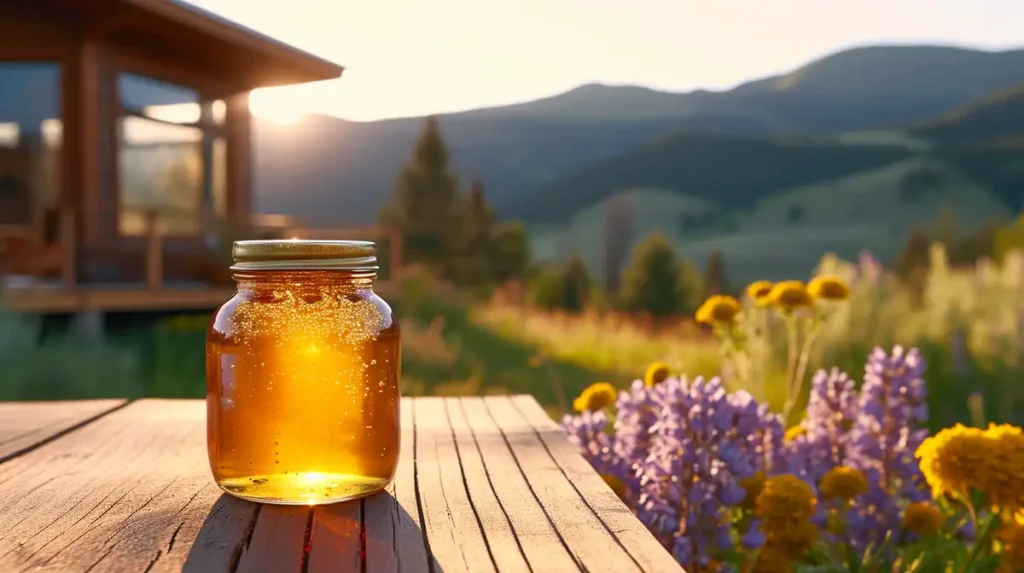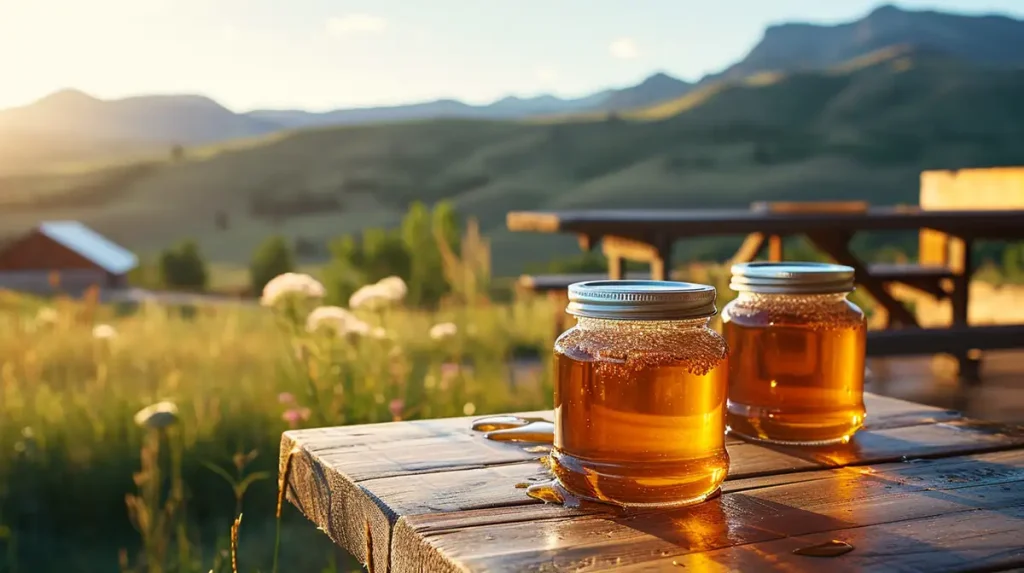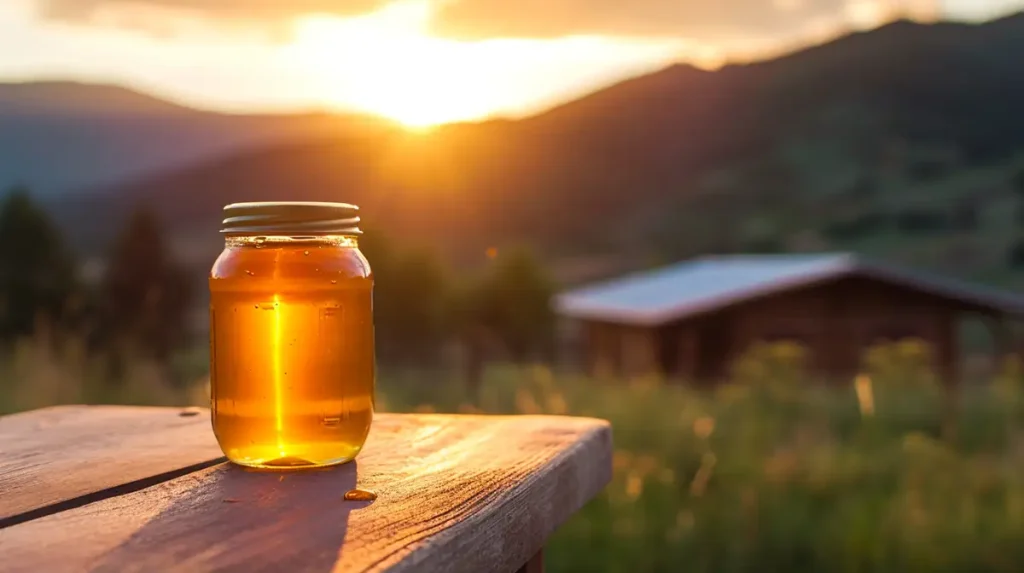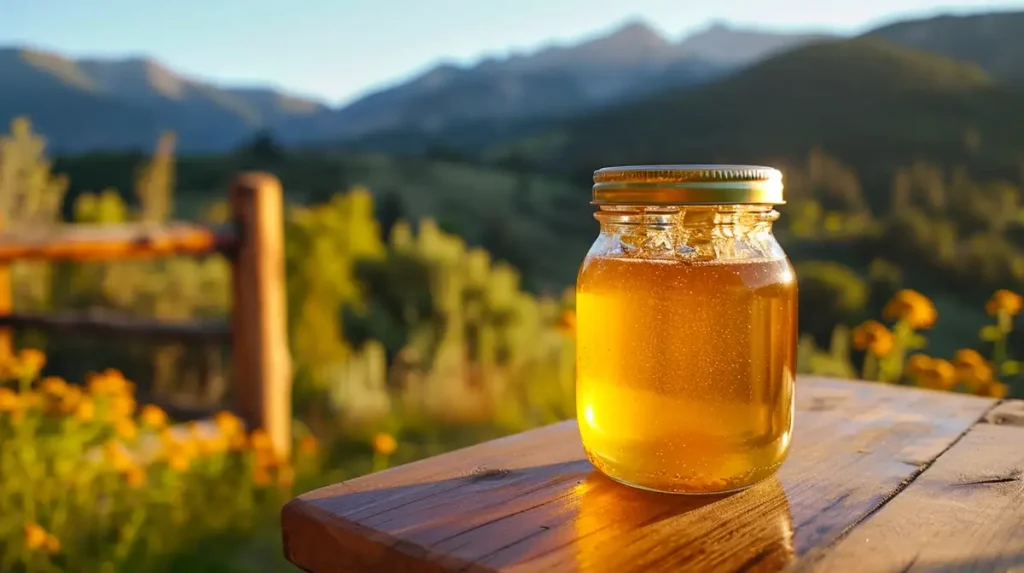Table of Contents
Honey is renowned for its long-lasting shelf life. It can remain edible for years, even decades, thanks to its low moisture content and high acidity, which deter bacterial growth. This remarkable preservation ability makes honey a timeless food, enduring far beyond the typical expiration dates of many other products.
In the below paragraphs, we will take a more detailed look at this topic.
Honey has been used as a natural sweetener and remedy for various ailments for thousands of years. While it is known for its long shelf life, many people wonder just how long honey can last. Know that factors such as storage conditions and the type of honey can affect its shelf life. Additionally, honey may crystallize over time, which is a natural process that does not indicate spoilage. In this article I will be exploring the shelf life of honey as well as topics such as how to store it properly and what to do if the honey has crystallized.
Before I get on to the article proper, if you have ever wondered yourself how long honey lasts for, then here is your answer: Honey is one of very few food items that will never spoil – provided it is stored correctly.

Does Honey Need to be Refrigerated?
Many people are curious about how to properly store honey and whether it needs to be refrigerated. The answer is no, honey does not need to be refrigerated.
Room Temperature is Best
Honey is a natural preservative and can be stored at room temperature for an extended period without spoiling. When stored correctly, honey will retain its flavor, aroma, and nutritional value for a long time. In fact, honey has been found in ancient Egyptian tombs and is still perfectly edible after thousands of years.
Freezing Honey
If you have a large batch of honey that you cannot use up quickly enough, freezing is an option. Freezing will not affect the flavor or nutritional value of honey and it will not spoil it. It’s worth noting though that freezing honey can change its texture, causing it to become thicker or grainy.
If you do decide to freeze honey, it’s essential to transfer it to a freezer-safe container with a tight-fitting lid. It’s best to freeze honey in small portions, so you can defrost only what you need without exposing the rest of the batch to air and moisture. Thaw frozen honey by leaving it at room temperature or in a warm water bath and give it a good stir before using it.
Why Refrigeration is Not Recommended
Refrigeration is not recommended for honey because the cool temperature can cause it to crystallize much quicker. Honey is a supersaturated solution of sugars and when exposed to cool temperatures the glucose within will form crystals. This causes the honey to become grainy and difficult to spread. The crystallization process is a natural occurrence and it does not affect the quality or nutritional value of honey (but it can change the texture and appearance).
How Should Honey be Stored?
We have ascertained that honey could in theory last forever when stored correctly. The only issues you are likely to see are a slight change in its color or some crystallization. As it is antibacterial and has a pH of between 3.26 and 4.48, bacteria and fungus will not form in honey. However, it should be noted that if moisture gets into the stored honey it could result in fermentation, which can cause the honey to taste sour.
When storing honey, it is best to keep it in a sealed container and not allow it to be contaminated by water or other substances that could encourage the growth of mold. If you have bought commercial honey, keep it in the container in which it came; if you have harvested honey from a hive, store it in a glass jar that has been sterilized and fully dried. Try to keep your honey at room temperature in a pantry, away from heat sources and direct sunlight.

Can You Eat Crystallized Honey?
Yes, crystallized honey is perfectly safe to eat. It may have a grainier texture than liquid honey, but it is still fine to consume. In fact, some people prefer the texture of crystallized honey since it is easier to spread on toast or crackers. Additionally, crystallized honey can have a richer flavor than liquid honey since the crystals trap and retain the honey’s flavor compounds.
- Carter, Anthony (Author)
- English (Publication Language)
- 194 Pages - 02/28/2024 (Publication Date) - Independently published (Publisher)
How to Decrystallize Honey
If you prefer liquid honey or are using crystallized honey for a recipe that requires liquid honey, there are several ways to decrystallize it. The easiest method is to place the jar of honey in a pot of warm water and stir until the crystals dissolve. It is important to use warm water and not boiling water since excessive heat can destroy the natural enzymes and nutrients in honey.
Another way to decrystallize honey is to use a microwave. Place the jar of honey in the microwave and heat it on a low power setting for 20-30 seconds. Take the jar out of the microwave and stir the honey until the crystals dissolve. If there are still crystals present, repeat the process until the honey is fully liquid.
Tips for Preventing Honey Crystallization
While crystallized honey is a natural occurrence, there are ways to slow down the crystallization process and extend the shelf life of liquid honey. One way is to store honey in a cool, dark place as sunlight and heat can accelerate the crystallization process. It is also important to keep the lid on the jar tightly closed to prevent moisture from entering the honey and causing it to crystallize.
Another tip is to avoid stirring the honey too vigorously or introducing foreign particles into it as this can also promote crystallization. Finally, some beekeepers add a small amount of creamed honey to liquid honey to slow down the crystallization process and extend the shelf life of the honey.
So, Does Honey Really Last for Thousands of Years?
As already mentioned, honey could potentially last forever if stored properly. But how do we know this?
For one thing, archaeologists in Egypt unearthed honey that they dated at 3,000 years old. The honey was still edible. The reason for this is the fact that honey is very high in sugar and low in water content, which means bacteria cannot survive on it. Microbes are also restricted from growing on honey thanks to the fact that it contains small amounts hydrogen peroxide.
How to Tell if Honey is Bad?
Honey does not spoil under normal conditions unless it is contaminated by moisture. This can happen if the honey is not stored properly. It is best to use glass to store honey instead of plastic or metal containers because these can cause the honey to oxidize. Be sure to use an air-tight container to prevent excess moisture getting in, which can result in fermentation and spoiled honey.
It is easy to tell when honey is bad because it has a sour taste.

How Long Does Honey Last – Conclusion
The good news for honey lovers is that honey is a food that will never expire when stored correctly. Although it can change color and texture, honey will rarely spoil. Spoilage of honey will only occur if moisture gets in and results in fermentation.
Honey should be stored at room temperature and kept away from heat sources and direct sunlight. It is not recommended to store honey in the fridge because this can speed up crystallization.
Looking to up your beekeeping game? Check out our latest product recommendations so you can take things to the next level!
Introducing The Top 12 Best Beekeeping Veils For 2024
Introducing The Top 20 Best Beekeeping Gloves For 2024
Introducing The Absolute Best Beekeeping Suits For 2024
The 15 Top Beekeeping Books for 2024
The Top 11 Honey Extractors for 2024
The Top 12 Mason Bee Houses for 2024
Last update on 2024-04-25 / Affiliate links / Images from Amazon Product Advertising API


